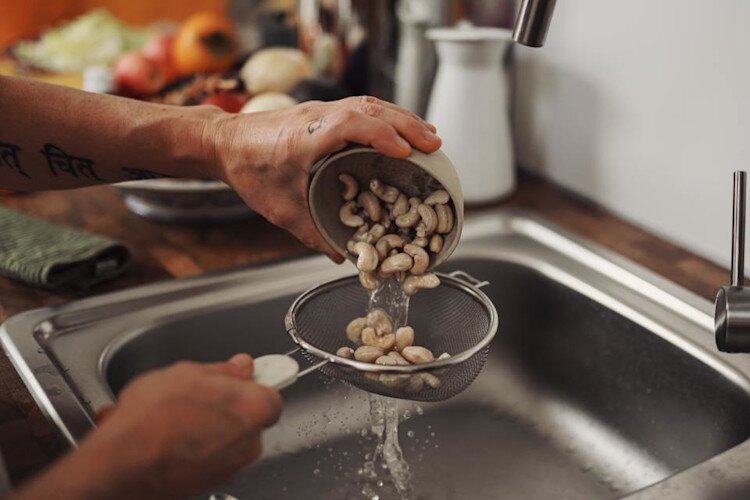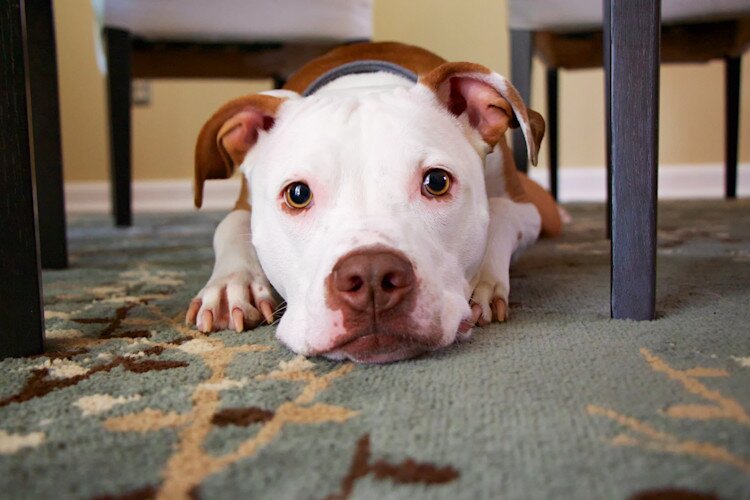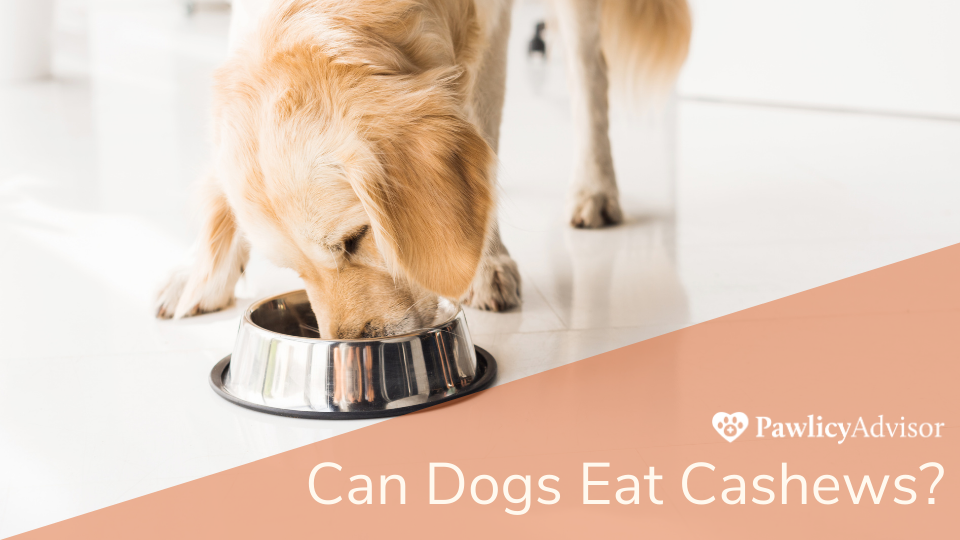Can Dogs Eat Cashews? Here's Everything You Need to Know
Getting more cashews in our diet is certainly a great idea for humans, but can our canine companions enjoy them as well? Unlike macadamia nuts, cashews aren’t toxic to dogs and are safe for consumption. However, there are some basic guidelines you should keep in mind before you introduce these tropical nuts to your pet’s diet.
This article will tell you everything your need to know about giving cashews to dogs and what to look out for in order to avoid any health issues.
Table of Contents:
- Can dogs eat cashews?
- Can cashews cause an allergic reaction?
- How to feed cashews to dogs
- Can dogs eat cashew butter and cashew milk?
- Healthy alternatives to cashews for dogs
- Key Takeaways
Pro tip: Knowing which toxic foods to avoid is the first step in making sure that your furry friend is safe. Finding the right pet insurance plan for when they get sick can cover up to 90% of the costs, taking the pressure off you and allowing you to focus on your pet getting better.
Can dogs eat cashews?
Cashew nuts provide nutrients that are beneficial to your canine companion. They contain omega-6 fatty acids, which in the correct balance with omega-3 fatty acids, help control inflammation in the body and keep the coat soft and shiny.
Cashews also contain antioxidants, fiber, protein, as well as a number of vitamins and minerals, including vitamin K, flavanols, calcium, copper, magnesium, iron, manganese, phosphorus, and zinc.

(Image source: Unsplash)
However, while dogs can safely eat a couple of cashews, consuming them in large amounts can lead to a number of health issues down the road.
- Obesity. Most pups can safely eat cashew nuts from time to time. However, cashews contain high levels of fat, so pet parents need to keep this in mind when giving them as a treat. A dog weighing 10 lbs requires around 220 calories per day, and considering that an ounce of these nuts contains about 160 calories, it will account for almost 75% of their daily needs. Too many cashews can lead to obesity which, in turn, can put your dog at risk of serious health problems. Generally speaking, treats should not make up more than 10% of your pup’s daily caloric intake.
- Pancreatitis. The high-fat content in cashews is also a concern when it comes to dogs prone to pancreatitis. Too much fat in the diet can cause the pancreas to become inflamed because it is unable to break down the fat. Some of the most common symptoms of the disease are decreased appetite, abdominal pain, and lethargy. If not diagnosed on time, pancreatitis can require aggressive treatment.
- Stomach upset. Fatty meals are difficult to digest, so too many cashews can cause stomach upset, diarrhea, and vomiting. That’s why you should ensure that they’re out of your pup’s reach when you can't supervise them.
- Bladder stones. The phosphorus in cashew nuts can harden inside your pup’s bladder, contributing to the formation of bladder stones.
If your four-legged friend is on a prescription diet for other medical problems (kidney disease, bladder stones, diabetes, etc.), it’s best to consult your vet before giving your pet cashews.
Can cashews cause an allergic reaction?
While nut allergies can be quite dangerous in humans, they are not so common in canines. Most often, dogs are allergic to foods like dairy, eggs, or chicken.
However, even though the chances of your pet developing an allergic reaction to cashew nuts are low, pet owners should know the symptoms of an allergic reaction (itching, swelling, and hives) when giving their pooches any human food for the first time.
Because some kinds of nuts can be quite toxic to dogs, it is important that you don’t give your pet cashew nuts out of a variety pack. Cases of allergic reactions to nuts in humans prove that it takes a very small amount to cause problems.
If you believe your dog is having an allergic reaction, stop feeding them cashews and call your vet.
Pro tip: Dog insurance can help cover the cost of allergy testing and treatment, in addition to helping you afford veterinary care for a number of other pet health issues.
How to feed cashews to dogs
You should be careful that there aren’t any other types of nuts in the package. Some nuts can be very dangerous for dogs. For instance, macadamia nuts are very toxic to them. Toxicity signs include weakness, vomiting, depression, difficulty walking, and cold intolerance. Other kinds of nuts that are bad for pups include walnuts, black walnuts (also known as hickory nuts), almonds, and pecans.

(Image source: Unsplash)
In addition, inspect nuts for mold before feeding them to your dog. Some types of mold can contain aflatoxin, which can upset your pet’s stomach, cause bowel obstruction, or even liver failure.
If you want to introduce cashews into your pup’s diet, be sure to always choose a packaged and unsalted variety (raw or roasted). Salted cashews should especially be avoided in dogs with heart disease.
Avoid giving your pup unshelled cashews. The shells contain a toxin called anacardic acid which can cause gastroenteritis and irritate the skin.
Don’t feed your pup any kind of chocolate-covered nuts, as well as any nut products sweetened with xylitol. Both chocolate and xylitol are toxic to dogs and can result in serious illness.
Can dogs eat cashew butter and cashew milk?
When served in small quantities, cashew butter is a perfectly safe treat for your furry pal. However, since cashews (like all nuts) are high in fat, you’ll need to limit your pet’s intake of cashew butter to 1-2 tablespoons a day.
Moreover, most store-bought cashew butter varieties contain additional ingredients such as added sugars, oils, or salt. You could consider preparing your own dog-safe cashew butter by mixing one cup of unsalted cashew nuts with a dash of honey and blending in a food processor until smooth.
Cashew milk is made using water and raw, unsalted cashews. Because pups can safely consume cashew nuts (in moderate amounts), the milk derived from these nuts is also safe for them to drink.
Healthy alternatives to cashews for dogs
Even though giving your canine companion cashews once in a while is okay, there are many healthy treat alternatives that are just as tasty:
- Carrots are one of the favorite treats among pups looking for new tastes. Besides being sweet, they are also very nutritious.
- Peaches and bananas are packed with vitamins, but they also contain high sugar content,t and for that reason, should be served in moderation.
- For a hydration boost during hot summer days, consider feeding your pup some juicy watermelon. Just be sure the seeds and rind are removed before serving.
- Homemade dog biscuits made with whole wheat flour, eggs, peanut butter, and canned pumpkin are an excellent way to please your pup’s sweet cravings risk-free.
Key Takeaways
- Dogs can safely eat cashews, as long as they are shelled, unsalted, and not mixed with other nuts.
- Even though these nuts may not be the best treat option, feeding them occasionally and in small amounts won’t cause any harm.
- If you have more questions about feeding cashews to your dog, consult your vet.
Do you want to find the best pet insurance?
Let's analyze your pet's breed, age, and location to find the right coverage and the best savings. Ready?
Analyze My PetAbout Pawlicy Advisor
The pet insurance marketplace endorsed by veterinarians, at Pawlicy Advisor we make buying the best pet insurance easier. By comparing personalized coverage and pricing differences we can save you a ton of money, up to 83% in some instances!
Instantly Compare Pet Insurance Plans
Guides
Determine If Pet Insurance Is Worth It
Comparison Charts
Find Your State
Dog Insurance
DVM
Ricky Walther, DVM, is a small animal general practitioner in the greater Sacramento, California area. Realizing the positive financial and medical impact that pet insurance can provide for pet parents and the profession, he lends support and advice to companies like Pawlicy Advisor "The Pet Insurance Marketplace") that simplify the process of connecting with veterinary financing resources.
